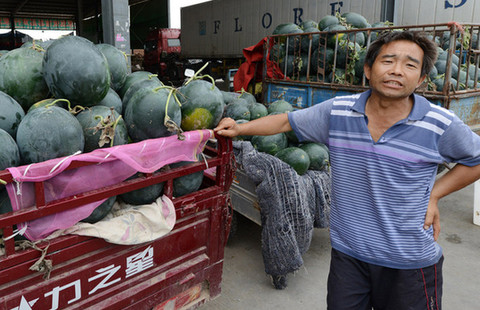Granaries to get a facelift as grain output rises
By Zhao Yinan in Zhuzhou, Hunan and Zhong Nan in Beijing (China Daily) Updated: 2014-07-05 06:40The center estimated that 15 million tons of corn might have to be stored in outdoor facilities, mainly in Northeast
|
 |
 |
Yan Jianxun, an employee from Sinograin's Zhuzhou branch, said the construction of granaries is costly. In 2012, the company spent 7 million yuan on building granaries with a total storage space for 20,000 tons of grain. "The cost must be even higher now due to inflation," he said.
"We are required to purchase all the grain from farmers at a fixed price to ensure the income of farmers and protect the grain industry," Yan said. "But when we sell the grain, the price will be subject to market forces. We have experienced severe losses as global food prices continue to decline."
He said the company has seen three consecutive years of losses. It lost 300 yuan on average for each ton of grain sold, and the company sells about 45,000 tons each year. The main source of income for local grain reserve companies is largely from government subsidiaries.
Cheng Guoqiang, secretary-general of the academic committee at the Development Research Center of the State Council, said cutting grain waste and improving grain stock quality are as important as preserving arable land.
Cheng said this year's summer grain harvest was bountiful, but granary capacity is still insufficient on the whole and seriously inadequate in certain regions.
- Audi reports record H1 sales in China
- Facebook leases office in Beijing with eye on long-term prospects
- Testing times ahead for stores in Hong Kong
- Event to chart green path for growth
- Vintage car displayed in auto museum in Harbin
- Chinese dairy firms catch private equity fancy
- Granaries to get a facelift as grain output rises
- Draft delisting rules provide more options

















